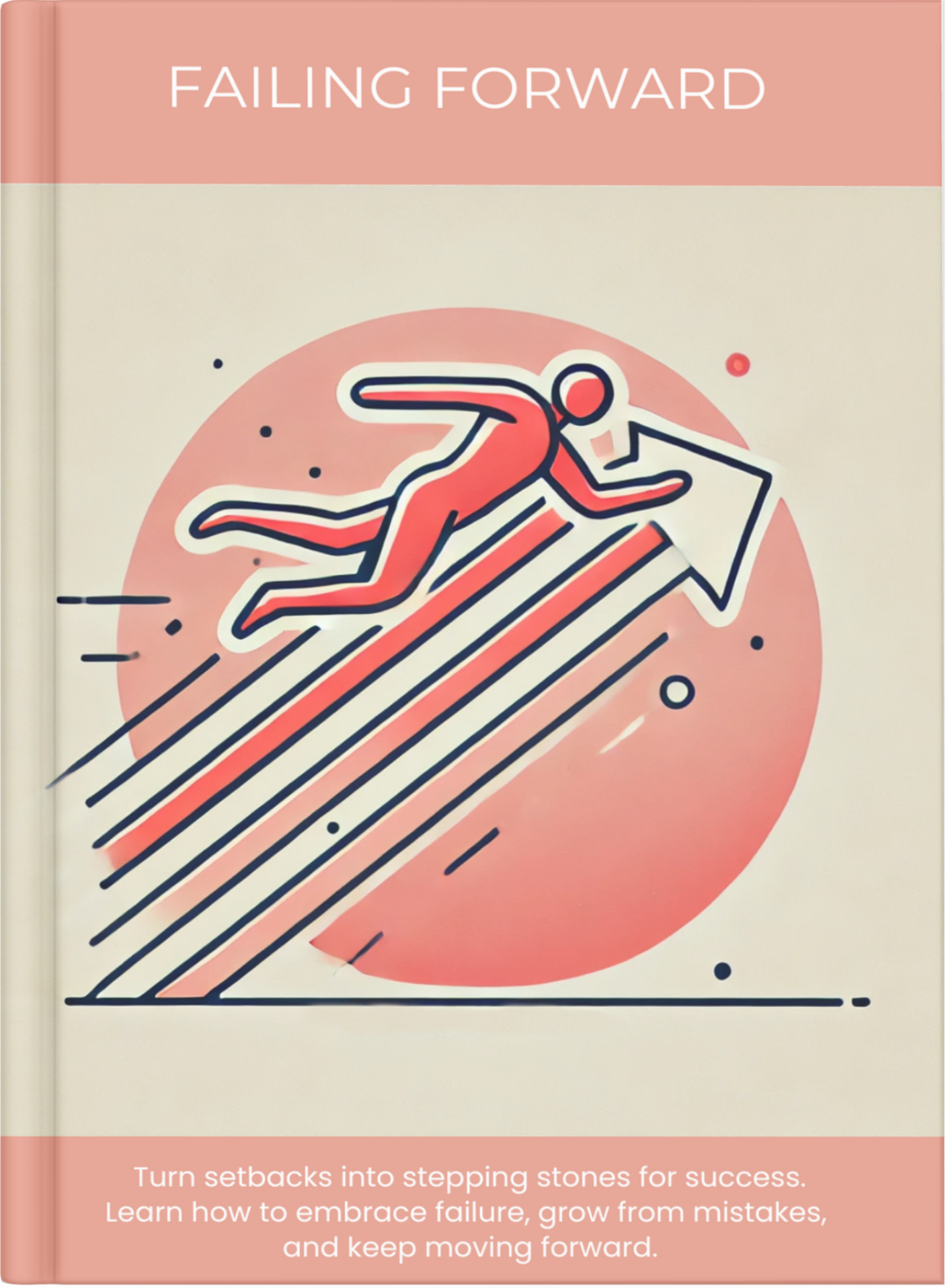
Failing Forward
John C. Maxwell
Failing Forward by John C. Maxwell explores the concept of failure and how it can be transformed into a stepping stone for success. The book emphasizes the importance of changing one's perspective on failure, learning from mistakes, and using setbacks as opportunities for growth and development.
0:000:00
Keypoint 1: Redefining Failure
In the journey of life, failure is often perceived as a negative endpoint, a sign that one has reached the limits of their abilities. However, this perception is a misconception that can hinder personal and professional growth. Redefining failure involves understanding that it is not the opposite of success but rather an integral part of the path to achieving it.
When you redefine failure, you begin to see it as a valuable teacher rather than a final verdict. Each failure provides an opportunity to learn, adapt, and improve. It is through these experiences that you gain insights into what works and what doesn’t, allowing you to refine your strategies and approaches. This shift in perspective transforms failure from a source of fear and avoidance into a stepping stone towards success.
Consider the stories of successful individuals who have faced numerous setbacks before achieving their goals. Their journeys illustrate that failure is not a barrier but a catalyst for innovation and resilience. By embracing failure, you open yourself up to experimentation and creativity, knowing that each attempt, whether successful or not, brings you closer to your ultimate objective.
Moreover, redefining failure encourages a growth mindset, where challenges are seen as opportunities for development rather than threats to self-worth. This mindset fosters perseverance and determination, essential qualities for overcoming obstacles and achieving long-term success.
In practical terms, redefining failure means setting realistic expectations and understanding that setbacks are a natural part of any endeavor. It involves being kind to yourself, acknowledging your efforts, and recognizing that every failure is a step forward in disguise. By doing so, you cultivate resilience and a positive attitude, empowering yourself to navigate the complexities of life with confidence and grace.
When you redefine failure, you begin to see it as a valuable teacher rather than a final verdict. Each failure provides an opportunity to learn, adapt, and improve. It is through these experiences that you gain insights into what works and what doesn’t, allowing you to refine your strategies and approaches. This shift in perspective transforms failure from a source of fear and avoidance into a stepping stone towards success.
Consider the stories of successful individuals who have faced numerous setbacks before achieving their goals. Their journeys illustrate that failure is not a barrier but a catalyst for innovation and resilience. By embracing failure, you open yourself up to experimentation and creativity, knowing that each attempt, whether successful or not, brings you closer to your ultimate objective.
Moreover, redefining failure encourages a growth mindset, where challenges are seen as opportunities for development rather than threats to self-worth. This mindset fosters perseverance and determination, essential qualities for overcoming obstacles and achieving long-term success.
In practical terms, redefining failure means setting realistic expectations and understanding that setbacks are a natural part of any endeavor. It involves being kind to yourself, acknowledging your efforts, and recognizing that every failure is a step forward in disguise. By doing so, you cultivate resilience and a positive attitude, empowering yourself to navigate the complexities of life with confidence and grace.

